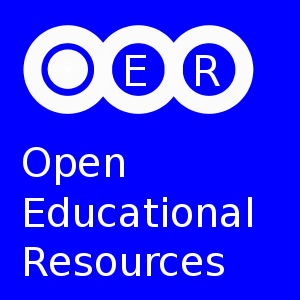I wrote this as a
Tech Beat article for the Times Standard:
Jonas is a 20-year-old
College of the Redwoods student. He works part-time at a local auto shop and wants to one day open his own business. He needs to take classes in business and mathematics to help him be successful. Because he works, he barely qualifies for any financial aid, but he was just able to save enough money to cover the cost of school and can make it if his financial aid will pay for the required textbooks.
On the first day of class, he discovers that his financial aid check won't arrive until two weeks after classes have started. Jonas will eventually buy his textbooks and catch up. Some students wait even longer and succumb to the temptation of just “winging it.” They try to get by without buying the textbook at all.
As you can see, Jonas, like many students in California, has a problem. The cost of education is rising twice as fast as the rate of inflation; it is rising even faster than the cost of healt
 Image via CrunchBase
Image via CrunchBaseh care. The average student spends over $900 a year on textbooks. In many cases, the cost of the textbook is higher than the cost of the class (from
Student PIRGs).
One innovative answer is “open textbooks.” What is an open textbook? An open textbook is one that is free, and instead of a traditional copyright which limits what a teacher can do with a text, it is either in The public domain or the author has used what is known as the
Creative Commons licensing -- the author retains ownership but spells out exactly how a textbook can be used (seehttp://creativecommons.org). These textbooks are available electronically at online repositories like
College Open Textbooks and
CK-12 which offers “customizable, free, curriculum aligned content for k-12." Open textbooks can also be available in hard copy editions for significantly lower costs.
Using open textbooks and learning objects can be just as effective and, in many cases, more effective than a commercial textbook. Why? Commercial textbooks are a one-size-fits-all proposition. Because learning objectives and outcomes differ from institution to institution based on the needs of the local communities, main faculty already have to adapt and remix commercial texts for the needs of the student populations, often in the form of additional, costly supplements or multiple books. What I have found in my work with open textbooks is that textbooks are often supplanted (not supplemented) by openly licensed video, audio, images (and yes, open textbooks), making the course even more engaging for the students.
The real value to the authors of open texts is that they are not drawing on their own work alone, but they are getting access to a community of authors, revisers, practitioners, researchers and adapters -- a community of scholarship that will support the work of the textbook. A commercial textbook cannot take into account the social and economic conditions of the local community. A traditional commercial college textbook cannot be adapted to the deficiencies or advantages of the local high school. You can, for a price, however, buy “supplements,” which is the hole card of the commercial publisher of not-quite-entirely-unlike open textbooks. Why let book printers in another state determine the needs of your community? A community of scholars can support an online English grammar better than any book publisher trapped in the two-year publishing cycle model. These conversations and decisions should be happening in colleges and schools, not corporate boardrooms.
The math department at College of the Redwoods is already addressing this issue. They have classes that include free textbooks authored by the faculty. The textbooks are available for free online, on CD, or for a nominal cost in the college bookstore if the students prefer a hard copy. These books are written by local instructor swho are aware of the particular problems faced by the local student population. For the math department, the textbooks did not seem adequate, and they were too expensive, so instructors like Dave Arnold, Bruce Wagner and others in the department wrote or contributed to their own textbooks that include online help, examples and online quiz banks.
And fortunately for Jonas, California Senator
Darrell Steinberg has proposed legislation to save California college students hundreds of millions of dollars a year in education costs. At a time when education affordability is at the forefront of national debate, this legislation would give students free access to open textbooks for 50 lower-division courses. These books would be available electronically through a “digital open source library,” with a print versions offered for around $20.





